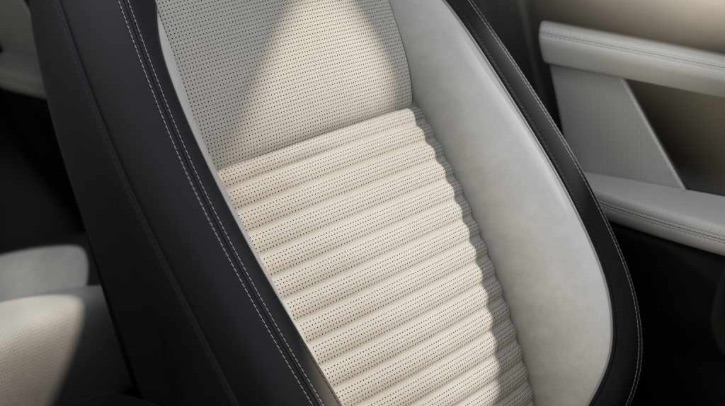JLR has made a breakthrough in the closed-loop recycling of polyurethane seat foam from its used vehicles by successfully integrating it back into the manufacturing of new seats.
In collaboration with Dow’s MobilityScience and automotive seating company Adient, this is the first time a closed-loop seat foam content has been successfully used in automotive production. JLR will now put the material through the full production process in order to test it at scale in pre-production vehicles early next year.
Polyurethane foams are challenging when it comes to recycling. They are designed for durability, but this means that if they end up in landfill, they can remain in the environment for years. By creating a closed-loop supply chain, JLR could reduce emissions, eliminate waste and enable a secure supply of low-carbon seat foam for its new vehicles.
Andrea Debbane, chief sustainability officer at JLR, said, “I am so excited about the potential of this way of working. It represents a collective commitment to doing things differently, challenging us to rethink our approach from all angles to find the solutions needed to design and build the cars of the future.”
Jon Penrice, mobility president, Dow, said, “By leveraging our expertise and collaborating with Adient and JLR, we are developing technologies that support our net-zero carbon emissions and our circular and renewable solutions goals. Through Dow’s Renuva sustainability program, Dow addresses the growing demand for recycled materials by converting end-of-life waste into new raw circular materials, helping our customers meet their recycled content targets.”
Mick Flanagan, vice president, customer Group, Adient, said, “Our collaboration with JLR and Dow not only showcases our commitment to sustainability but also demonstrates how innovative partnerships can drive significant advancements in the automotive industry. By leveraging recycled polyurethane, we are setting new benchmarks for environmental responsibility while ensuring our products deliver the luxury and comfort our customers expect.”
The breakthrough is a result of ongoing research and testing at JLR’s Circularity Lab in Gaydon, UK, which aims to reduce waste and boost recyclability. This lab and its team disassemble vehicles in a collaborative manner, working closely with materials suppliers and experts to overcome the barriers to reuse and recycling.
Data is fed from the lab directly into early decision-making in vehicle development and testing about the technical feasibility of returning materials such as glass, steel, aluminum and polymers back into JLR’s supply chain for reuse in the production of new vehicles.



